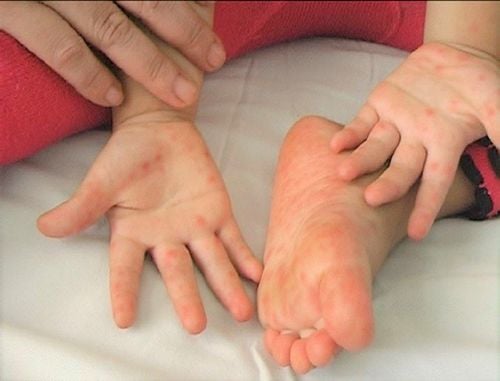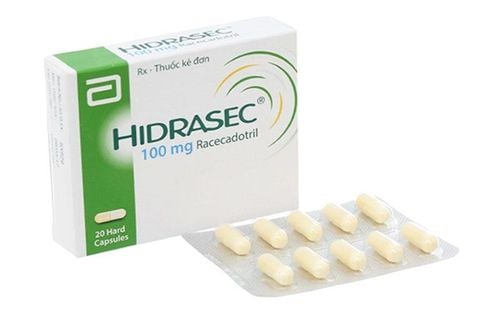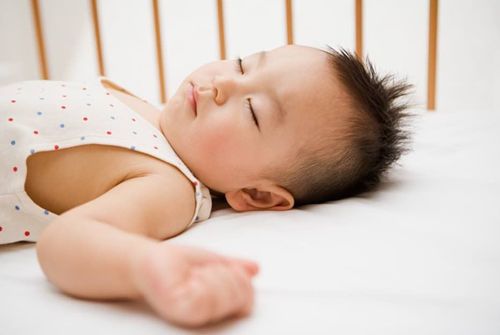If your child has a fever, it’s okay to let them stay in an air-conditioned room. A cool room can help bring down their temperature faster. However, parents need to follow certain principles to protect the child’s health.
1. The effects of air conditioning on a child's health
During the summer, prolonged hot weather often prompts families to use air conditioning for their children. However, proper use of air conditioning is essential to avoid health issues for children. Overuse or improper use of air conditioning can lead to respiratory diseases such as bronchitis, rhinitis, pneumonia, and sore throat, especially if the child has asthma. Additionally, prolonged stays in air-conditioned rooms may cause dry skin, dehydration, and create favorable conditions for bacterial infections.
Using the air conditioner the wrong way can dry out your child’s airways, making it harder to breathe or even causing a fever or diarrhea. Excessive time indoors can also hinder vitamin D synthesis from sunlight, resulting in irritability, night sweats, poor sleep, and weakened immunity. Lack of outdoor activities reduces energy expenditure, leading to poor appetite and eating habits.
Trắc nghiệm: các chỉ số cần chú ý về sự phát triển thể chất của trẻ
Chiều cao, cân nặng của bé ở từng giai đoạn nên là bao nhiêu là bình thường, bao nhiêu là bất thường? Cùng ThS.BS Ma Văn Thấm điểm lại xem bạn đã nắm được các chỉ số phát triển thể chất của bé chưa nhé!The following content is prepared under supervision of Thạc sĩ, Bác sĩ y khoa, Ma Văn Thấm , Nhi , Phòng khám Đa khoa Vinmec Dương Đông(Phú Quốc)
2. Should children with a fever stay in an air-conditioned room?
According to doctors, children with a fever can still use air conditioning as usual. Air conditioning provides a cool and comfortable atmosphere, helping the child feel more at ease. The air conditioner circulates cool air, directly affecting the feverish child’s body to cool it effectively. However, parents should follow several key principles to ensure the child rests well and recovers quickly.
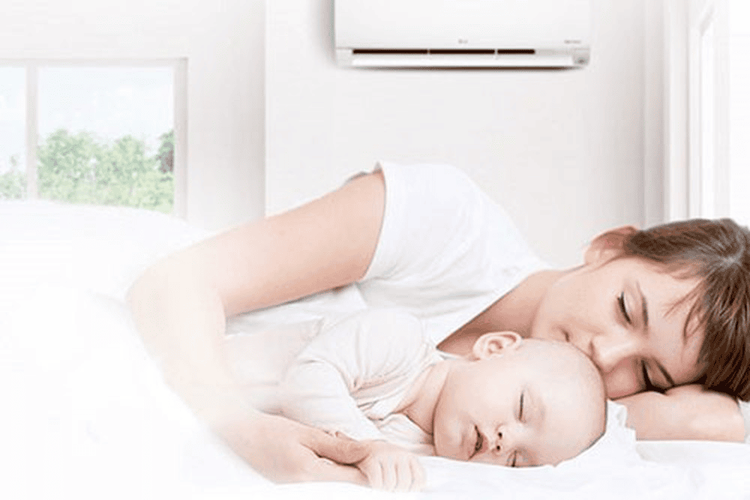
3. Essential principles when using air conditioning for children with a fever
Children are highly sensitive to temperature changes. If it is too hot, they may develop rashes; if too cold, they are prone to coughing or bronchitis. Therefore, parents must adhere to the following principles:
3.1 Maintain an appropriate air conditioner temperature
A child's body temperature differs from adults because their thermoregulatory system is not fully developed. While adults may find the room temperature comfortable, it might be too cold for children. Therefore, Keep the room temperature at 27–29°C—that’s just right for your child.
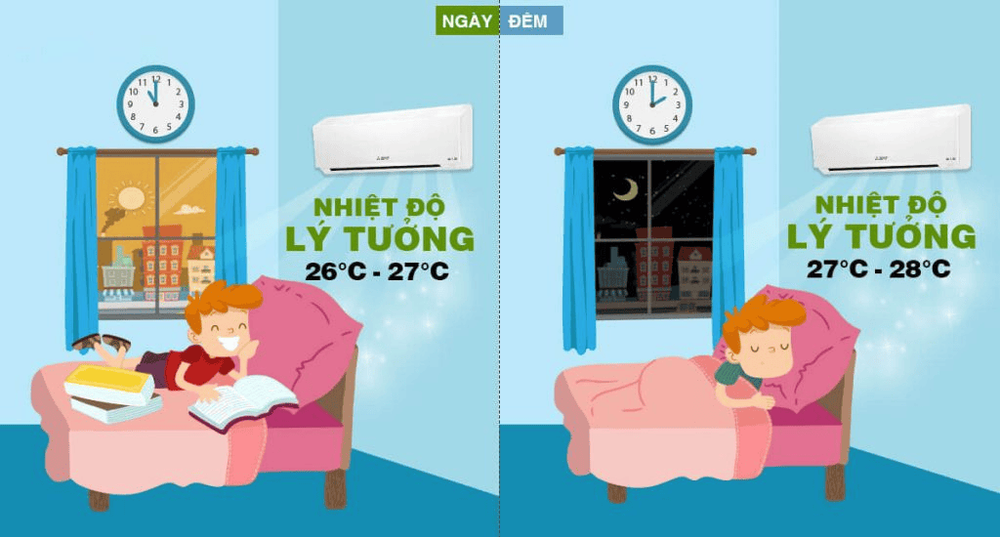
3.2 Avoid running the air conditioner 24/7
If you keep the air conditioner on all day, the air can get stale and harm your child’s breathing. Parents should turn off the air conditioner at least twice daily, open all windows, and use a fan to circulate fresh air. Allowing natural sunlight into the room also helps improve air quality and makes the child feel more comfortable.
3.3 Follow the 3-minute rule
Sudden changes between the cool room and hot weather outside can make your child’s fever worse. Before taking the child out of the room, open the door for 3 minutes to allow them to adjust gradually to the outside air and avoid thermal shock.
3.4 Do not direct air conditioner airflow directly at the child
When a child is feverish, direct airflow from the air conditioner can worsen their condition, increasing the risk of respiratory diseases such as rhinitis, bronchitis, and pneumonia…Therefore, parents should place the air conditioner at a high position, avoid directing the air vents toward the child, and refrain from setting the fan speed too high. Instead, set the fan to the lowest speed and use oscillation mode to circulate air throughout the room.
3.5 Clean the air conditioner and the room regularly
After a long winter, ensure the air conditioner is thoroughly cleaned, including its filters, to prevent mold, bacteria, or germs from affecting the child's respiratory health. Additionally, regularly clean the room to eliminate airborne pathogens. To combat the dry air caused by air conditioning, consider placing a bowl of water or using a humidifier to maintain balanced humidity levels.
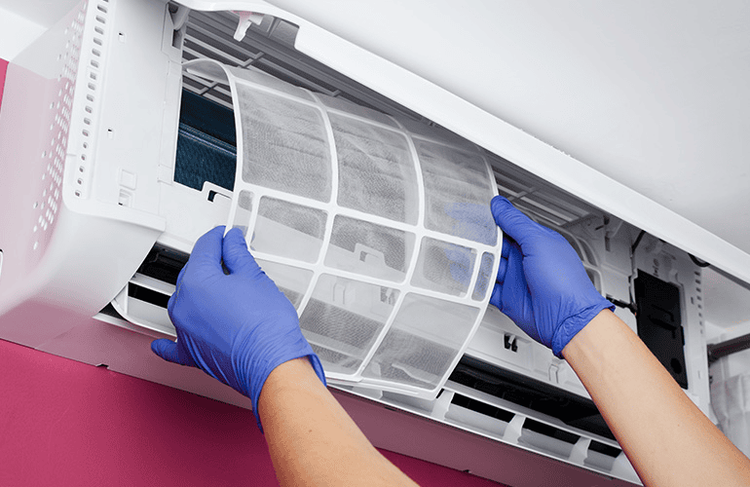
3.6 Additional tips:
In addition to using the air conditioner properly, parents should also pay attention to their child's health and follow these guidelines:
- Regularly use saline nasal drops to keep the nasal passages moist and prevent dryness.
- Encourage your child to drink plenty of water. For breastfeeding infants, increase the frequency of feedings to prevent dehydration.
- Cover your child with a thin blanket while they sleep, ensuring their abdomen is covered to avoid cold from excessive pore dilation.
- Provide cooling foods that help reduce heat and boost immunity, such as orange juice or lemon juice.
- Dress your child in sweat-absorbing clothes, preferably made of cotton.
- Change wet diapers frequently and promptly to prevent cold exposure.
- Turn on the room's ventilation fan when using the air conditioner to maintain airflow.
- Take your child outside in the early morning (6–7 a.m.) for at least 15 minutes daily to enjoy fresh air and sunlight, which is beneficial for their health.
- Avoid overusing the air conditioner; only turn it on during hot, humid weather.
- After being outside in the heat, clean off sweat and let your child rest for at least 3 minutes before entering an air-conditioned room.
Children need an adequate daily intake of elemental zinc to enhance their appetite and achieve or exceed standard height and weight. Zinc plays a crucial role in nearly all biological processes in the body, especially in the synthesis and breakdown of nucleic acids and proteins. A deficiency in zinc can lead to various health issues, such as neurological disorders and irritability. Therefore, parents should understand the importance of zinc and how to supplement it appropriately for their child.
In addition to zinc, parents should also provide other essential vitamins and minerals such as lysine, chromium, and B vitamins. These nutrients help improve appetite, strengthen the immune system, and boost resistance to reduce the frequency of common illnesses.
To arrange an appointment, please call … or make your reservation directly HERE. You may also download the MyVinmec app to schedule appointments faster and manage your reservations more conveniently.







